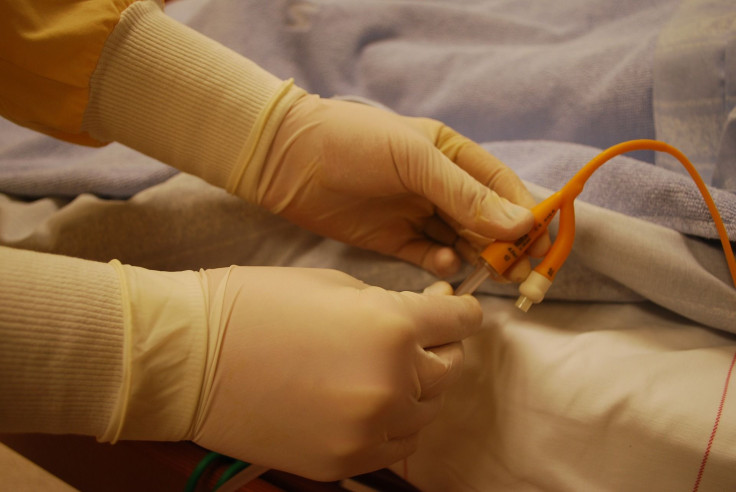Catheters With Non-Narcotic Nerve Block May Better Control Children's Pain After Chest Surgery

Pain management after surgery can be a tricky endeavor when you consider the side effects of most powerful painkillers, namely the risk of addiction. In an attempt to move away from traditional narcotics, experts are studying alternative methods like medical marijuana to keep pain in check. Now, a new study from the Mayo Clinic suggests a non-narcotic nerve-blocking drug called paravertebral blockade can help shorten hospital stays and reduce opioid use in post-surgery patients.
For their study, scientists focused on controlling pain in children with pectus excavatum, a congenital condition where the sternum is sunken into the chest. This can be corrected with a Nuss procedure, or a minimally invasive surgery that involves doctors making small incisions under the sternum in order to insert a titanium bar that helps reshape the chest wall. Though the surgery is relatively quick, pain control afterwards can be difficult.
The study considered the cases of 132 children who underwent a Nuss procedure, 114 of whom were sent home with catheters that infused the paravertebral blockade while 18 were given an anesthetic epidural. Those who received the catheter experienced a median hospital stay of about 80 hours, a day and a half shorter than the typical 120 hours spent post-operation. What's more, children with catheters needed fewer opioids than those who were given an epidural.
“Our operation is minimally invasive, but it produces major changes in the chest wall. Pain was an issue for our patients, but this new technique has solved the problem,” said co-author Dr. Christopher Moir, a pediatric and thoracic surgeon in the Mayo Clinic Children’s Center, in a statement. “It’s better than an epidural, because it’s reliable, and kids can go home with it. For the first time, we consistently deliver on our promise to minimize pain.”
Previous Mayo Clinic research, along with that of other institutions, has demonstrated that paravertebral blocks can successfully control pain after other procedures as well, including breast cancer surgery and hernia repair.
Pectus excavatum, also called funnel chest, is the most common kind of chest wall deformity, occurring in an estimated 1 in 300-400 births. The problem is usually identified shortly after birth, and worsens as children age. The severity of the condition varies, but even the least noticeable cases can cause children to feel self-conscious.
In mild cases, physical therapy can improve posture, whereas moderate and severe cases require surgery to correct the problem. Once upon a time a chest-opening procedure to reshape the ribcage was the norm, but the Nuss procedure has recently taken over. Epidurals are the standard method for pain management, but the researchers hope to change that since epidurals must be stopped before the children leave the hospital, meaning the pain will soon persist.
Moir concluded: "This study puts solid data to what we see each day in the hospital and what families tell us. Paravertebal catheters work."
Source: Dean N, Moir C, Potter D, Haile D. Multi-modal Pediatric Pain Management with Continuous Paravertebral Block for Nuss Procedure. American Pediatric Surgical Association 46th annual meeting. 2016.
Published by Medicaldaily.com



























